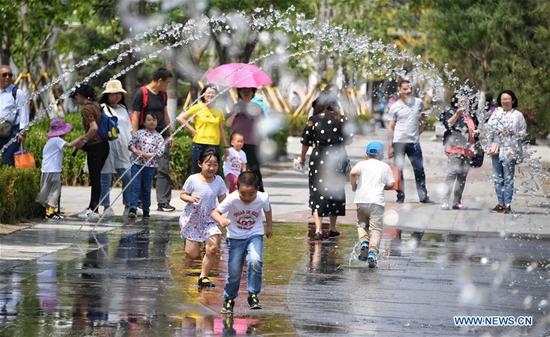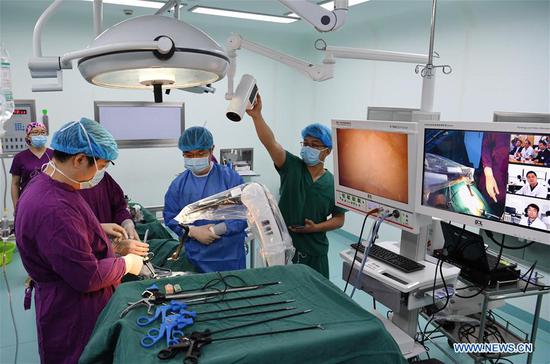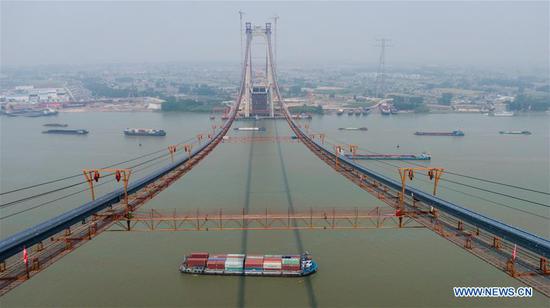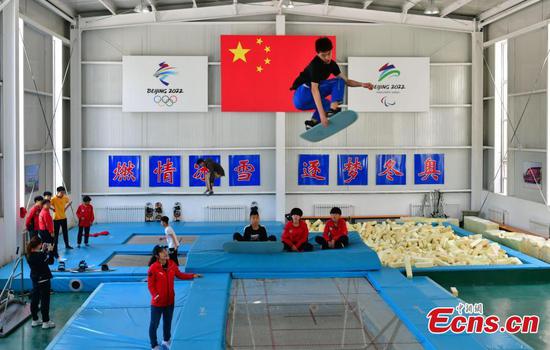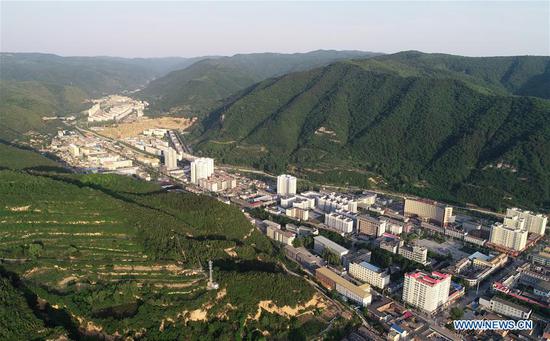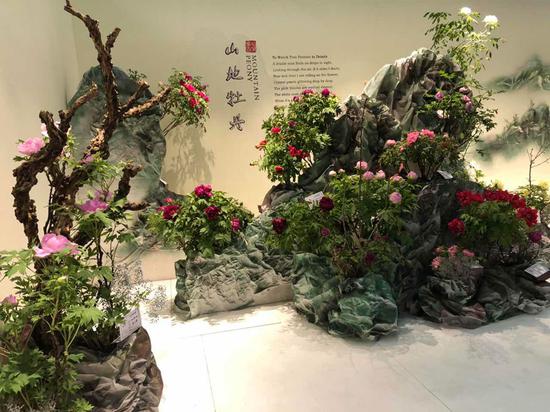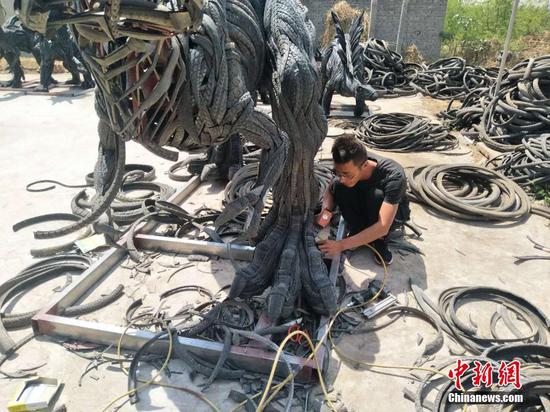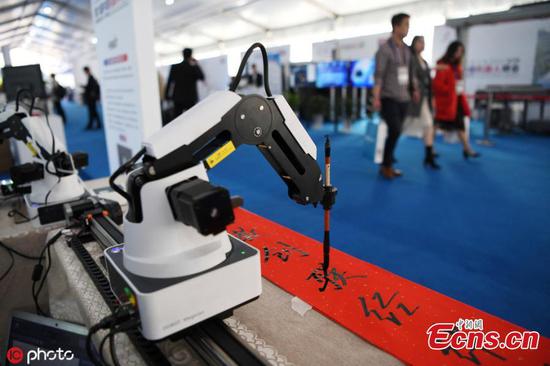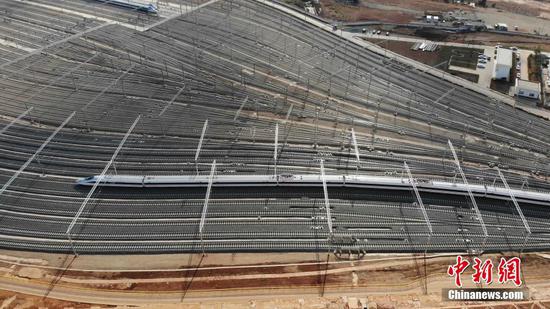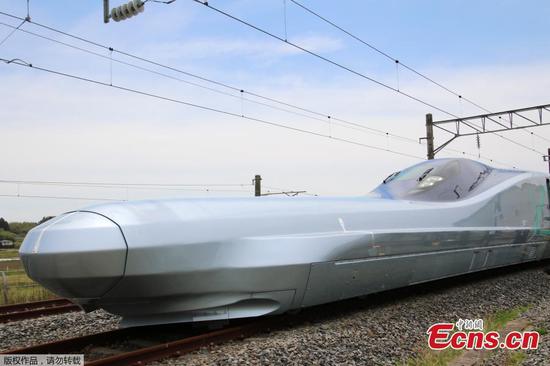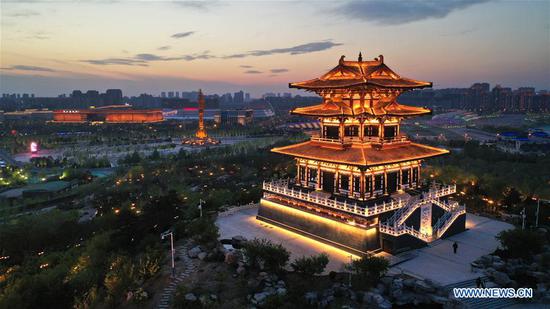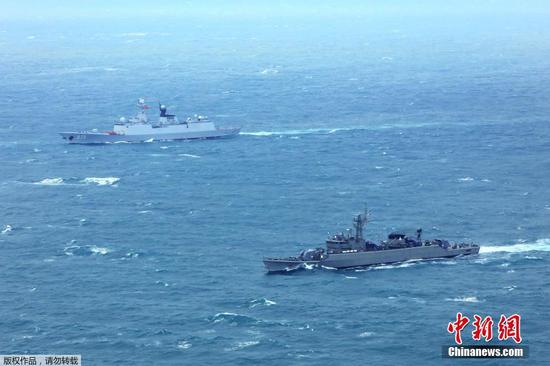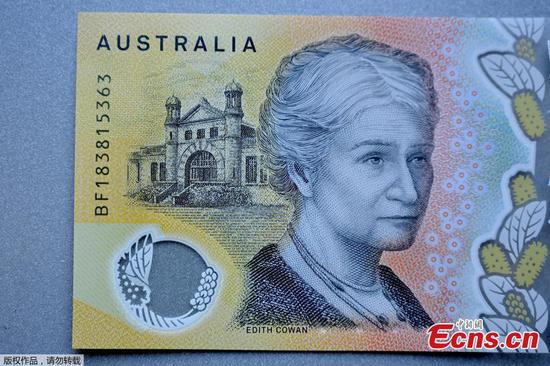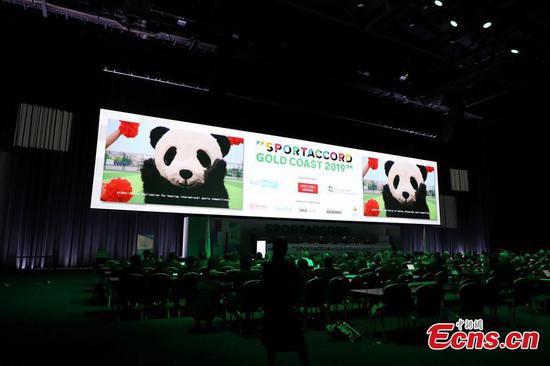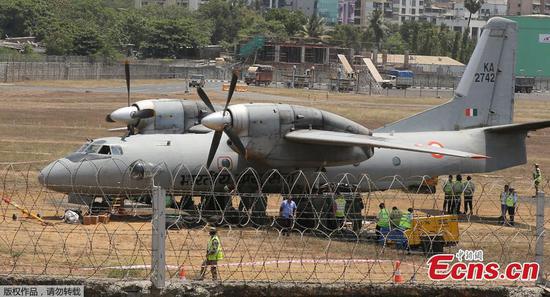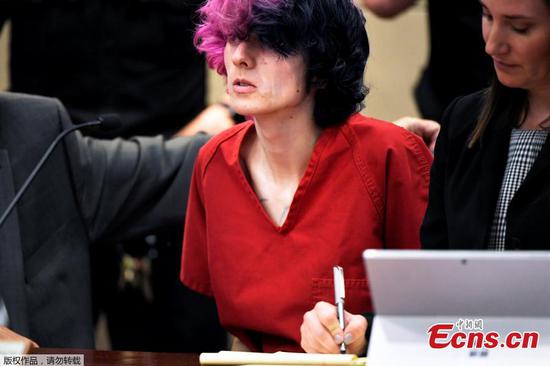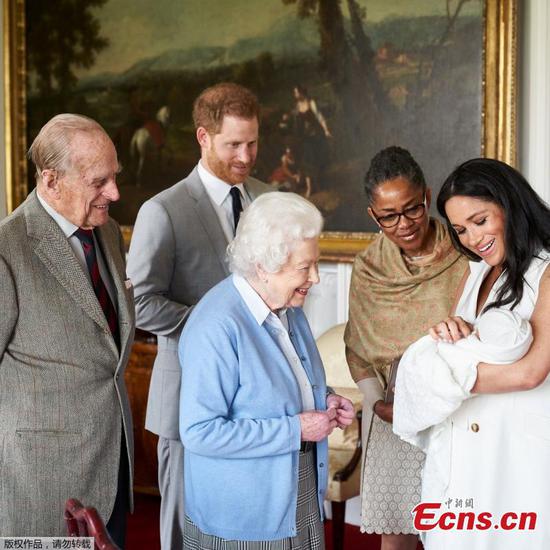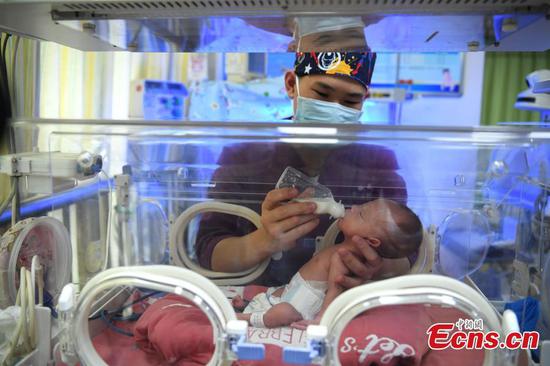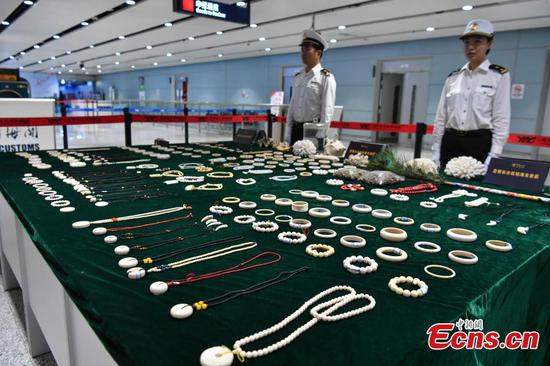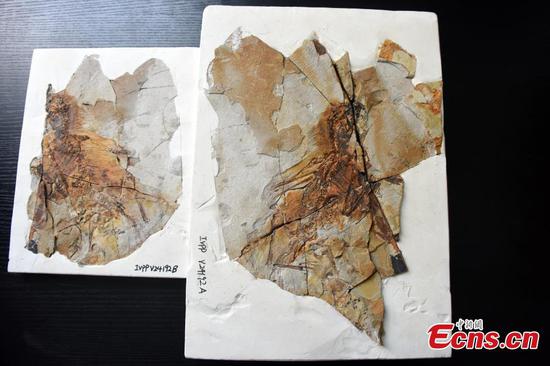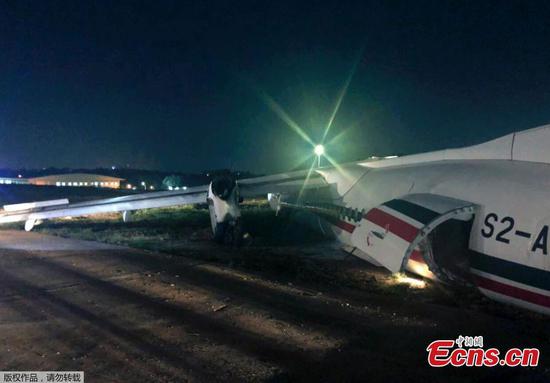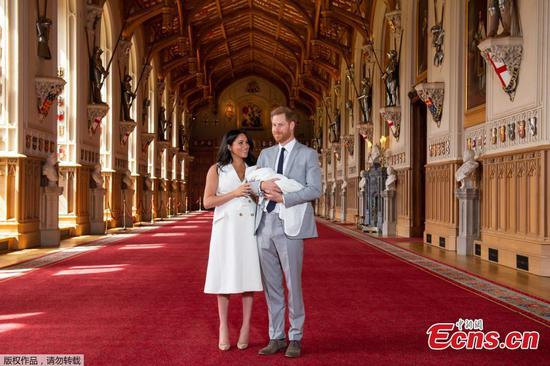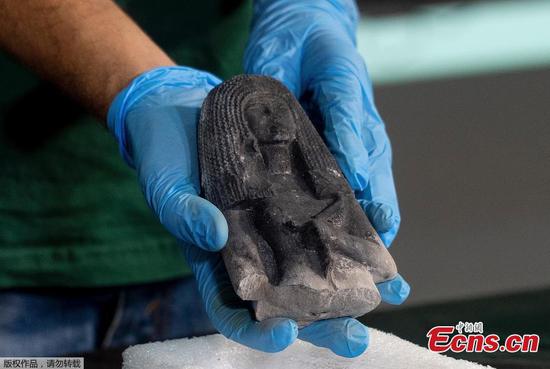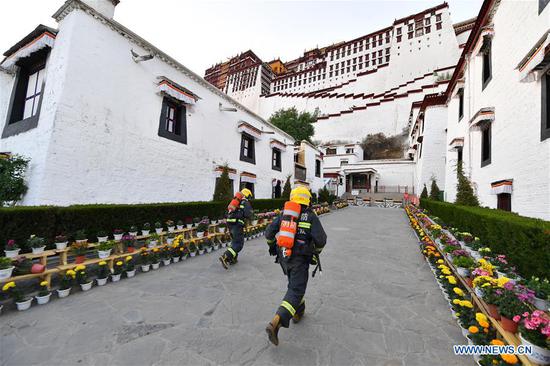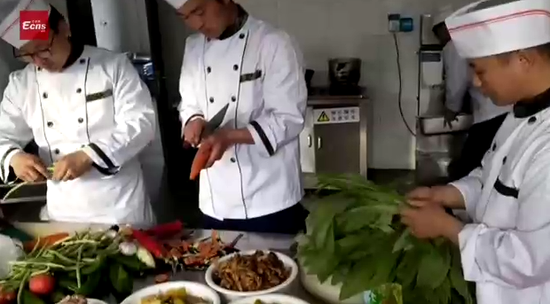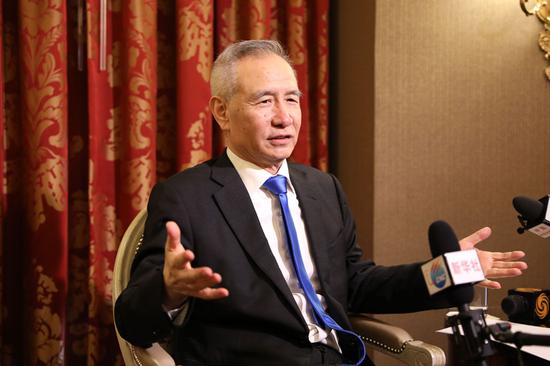
Vice-Premier Liu He talks to the media Friday afternoon in Washington following the 11th round of China-US high-level economic and trade consultations. The two sides agreed to continue negotiations in Beijing. (Zhao Huanxin/China Daily)
Analysts underline cooperation during trade talks between Beijing, Washington
China's insistence on protecting its core interests during trade consultations with the United States is a rational choice in accordance with international practice, experts said.
Vice-Premier Liu He said in Washington on Friday that what China wants is a fair and dignified trade agreement. And while key disparities remain, a deal must address the country's core concerns, such as lifting all additional tariffs, establishing realistic procurement expectations and ensuring that the text in any deal is "balanced".
Dong Yan, director of the international trade office at the Institute of World Economics and Politics under the Chinese Academy of Social Sciences, said China's opposition to the new U.S. tariffs and its quest for a "balanced trade pact" have a rational basis.
What China has been insisting upon is "the rational choices any country has when facing unreasonable requests in trade rules", Dong said at a seminar on Sunday in Beijing, citing similar cases in history.
Negotiators held an 11th round of talks in Washington on Thursday and Friday.
Before heading back to Beijing, Liu said that there needs to be discussion on some key issues.
"We believe that these things are major issues of principle. So every country has important principles, and we absolutely cannot make concessions on such issues," Liu said. However, the vice-premier added that he hoped both sides would exhibit flexibility in the talks.
China and the U.S. have been embroiled in tariff exchanges since July. Washington's latest levies targeting Chinese imports came into force on Friday.
Wei Jianguo, vice-president of the China Center for International Economic Exchanges, said, "Twists and turns in trade consultations are not uncommon and should not be exaggerated."
He said the negotiations haven't broken down, since the two sides had agreed to continue their talks in Beijing. Despite the current headwinds, cooperation is the best choice for the two countries, he added.
Dong believes that China and the U.S. have large potential for cooperation, saying the important task for both sides is to advance discussion based on enhanced mutual trust.
While remaining cautiously optimistic about mid- and long-term China-U.S. trade ties, experts called for working out more targeted measures for all possible situations.
U.S. Trade Representative Robert Lighthizer announced Friday evening that he was preparing to impose additional tariffs on an additional $300 billion worth of Chinese imports.
Chinese government officials reiterated on various occasions that the country is firmly opposed to a trade war, but the country is fully prepared to fight one. Following the latest U.S. tariff move, the Ministry of Commerce vowed to take necessary countermeasures.
Gao Lingyun, a research fellow at the Institute of World Economics and Politics of the Chinese Academy of Social Sciences, said China can use effective measures to resist potential risks from the increased tariffs, ensure domestic economic stability and firmly protect the rights of Chinese companies and consumers.
Gao suggested that the country works out comprehensive countermeasures that can respond to the U.S. precisely and efficiently.
Zhang Yansheng, a senior research fellow at the Academic Committee of the National Development and Reform Commission, highlighted the need to stay focused on the country's reform and opening-up. Enhanced efforts are needed to further align domestic rules and mechanisms with international ones, and to strengthen the economy amid rising competition, he said.
Liu said he was optimistic about China's economy in the longer term, adding that it had entered a growth cycle after bottoming out somewhat in 2018. He said the Chinese economy would maintain its good momentum of stable and healthy growth, and the country has ample room for fiscal and monetary policy maneuvers。









